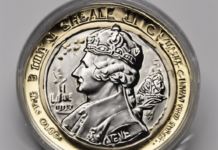The “My Friend’s Hot Mom” trope has become a popular and often controversial theme in various forms of media, from movies to literature to memes. This trope typically involves a younger male character lusting after or engaging in a romantic relationship with his friend’s mother, who is portrayed as attractive, seductive, and often sexually adventurous. While this trope can be titillating and entertaining for some audiences, it also raises questions about age, power dynamics, and the portrayal of women in media. In this blog post, we will delve into the dynamics of the “My Friend’s Hot Mom” trope, examining its origins, prevalence, impact, and implications in popular culture.
Origins of the Trope
The “My Friend’s Hot Mom” trope has roots that can be traced back to ancient mythology and classic literature. The archetype of the seductive older woman has been a recurring theme in storytelling for centuries, from Greek myths like the tale of Zeus and Leda to Shakespeare’s character of Cleopatra in “Antony and Cleopatra.” These early portrayals often depicted older women as alluring and dangerous figures who tempted younger men.
Evolution in Popular Culture
In modern times, the “My Friend’s Hot Mom” trope has been popularized and perpetuated through various media, including films, television shows, and internet memes. Movies like “American Pie” and “The Graduate” feature storylines where young men develop romantic or sexual feelings for their friends’ mothers, leading to comedic or dramatic situations. TV shows like “Friends” and “How I Met Your Mother” have also incorporated this trope into their plotlines, adding layers of complexity and humor.
Portrayal of Women
One of the key criticisms of the “My Friend’s Hot Mom” trope is its portrayal of women as objects of desire or conquest, rather than fully developed characters with agency and autonomy. The emphasis on the older woman’s physical appearance and sexual prowess can reduce her to a one-dimensional stereotype, perpetuating harmful myths about women and aging. Additionally, the power dynamics at play in these relationships, where an older woman is involved with a significantly younger man, can raise ethical questions about consent and exploitation.
Impact on Audiences
The “My Friend’s Hot Mom” trope can have a polarizing impact on audiences, with some viewers finding it entertaining and fantasy-driven, while others perceive it as problematic and reinforcing of harmful stereotypes. The trope’s popularity also reflects societal attitudes towards age, gender, and sexuality, highlighting broader cultural beliefs and norms surrounding relationships and desire. By examining the reactions and responses to this trope, we can gain insights into how media representations shape our perceptions and values.
Critiques and Controversies
Critics of the “My Friend’s Hot Mom” trope argue that it glorifies inappropriate relationships, normalizes predatory behavior, and undermines the agency of older women. The trope’s focus on age differences and taboo desires can sensationalize these dynamics without addressing the real-world implications or complexities of intergenerational relationships. While some defenders of the trope view it as harmless fantasy or comedic fodder, others caution against its potential to reinforce harmful stereotypes and contribute to ageism and sexism.
Subversion and Parody
In recent years, creators have started to subvert or parody the “My Friend’s Hot Mom” trope in media to critique its underlying assumptions and challenge traditional gender roles. Shows like “Crazy Ex-Girlfriend” and “Broad City” have played with the trope’s expectations, presenting alternative narratives and perspectives on older women’s sexuality and relationships. By deconstructing and reimagining this trope, storytellers can offer more nuanced and inclusive representations of age, desire, and power in their work.
Real-Life Perspectives
While the “My Friend’s Hot Mom” trope is primarily a fictional construct, it can also resonate with real-life experiences and dynamics. Interpersonal relationships that involve significant age differences or unconventional pairings are not uncommon in society, challenging conventional norms and expectations. By examining how media portrayals influence our perceptions of such relationships, we can better understand the complexities and nuances of human sexuality, desire, and connection across generations.
Conclusion
The “My Friend’s Hot Mom” trope is a multifaceted and provocative theme that reflects broader cultural attitudes towards age, desire, and gender. While this trope has been popularized in various forms of media and entertainment, it also raises important questions about representation, consent, and power dynamics in storytelling. By critically examining and engaging with this trope, we can unpack its implications and meanings, ultimately fostering more inclusive and empowering narratives around intergenerational relationships and female sexuality in popular culture.
FAQs:
1. Is the “My Friend’s Hot Mom” trope always problematic?
While the trope can perpetuate stereotypes and problematic dynamics, its impact can vary depending on how it is portrayed and explored in media. Some creators use the trope as a platform for subversion and social commentary, challenging traditional narratives and expectations.
2. Are there real-life examples of relationships that mirror the trope?
Real-life relationships involving significant age differences or unconventional pairings do exist, but they are complex and diverse, defying easy categorization or judgment. It’s essential to consider the nuances and contexts of each individual relationship.
3. How can audiences engage critically with the “My Friend’s Hot Mom” trope?
Audiences can approach the trope with a critical lens, analyzing its themes, characterizations, and implications within the larger context of the story or media work. By questioning and reflecting on the messages conveyed by the trope, viewers can deepen their understanding of its cultural significance.
4. What are some alternative representations of older women in media?
Creators are increasingly exploring diverse and multidimensional portrayals of older women in media, showcasing their agency, wisdom, and vitality. Shows like “Grace and Frankie” and “The Golden Girls” offer nuanced depictions of aging and female friendship, challenging stereotypes and celebrating resilience.
5. How can storytellers effectively subvert or critique the “My Friend’s Hot Mom” trope?
Storytellers can subvert the trope by flipping its conventions, complicating character dynamics, or exploring alternative narratives that challenge traditional gender roles and power dynamics. By incorporating diverse perspectives and voices, creators can offer more inclusive and empowering representations in their work.





